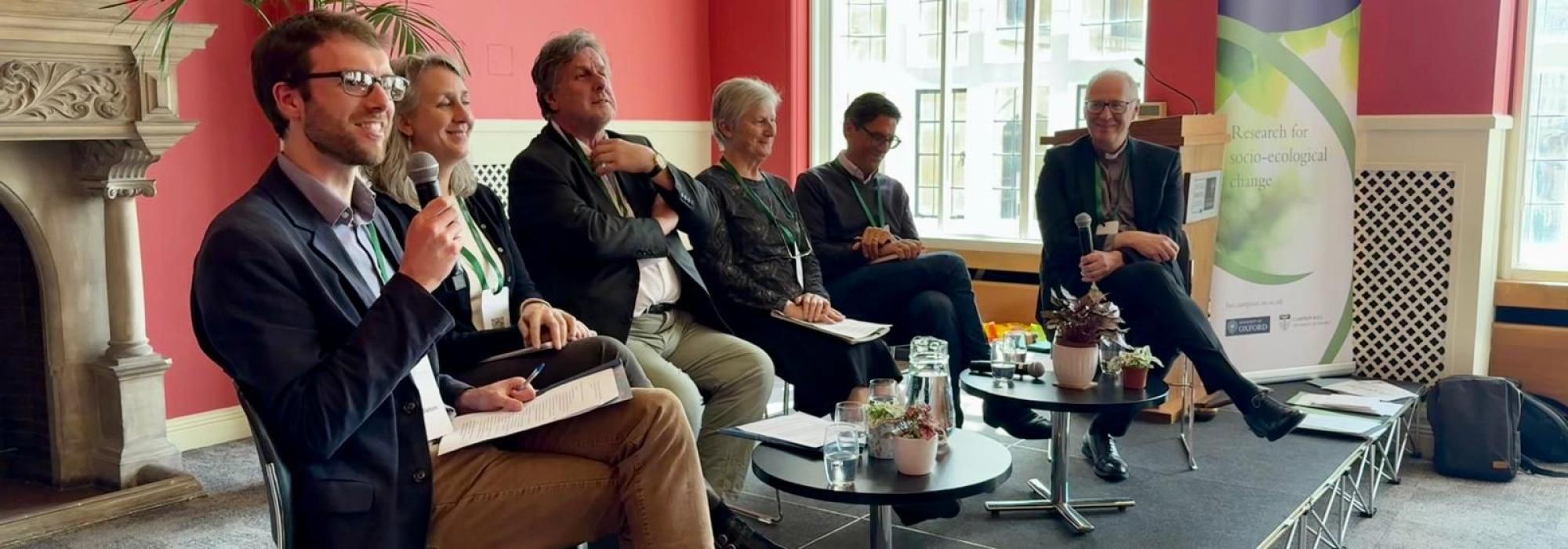It is essential to seek comprehensive solutions which consider the interactions within natural systems themselves and with social systems. We are faced not with two separate crises, one environmental and the other social, but rather with one complex crisis which is both social and environmental. Strategies for a solution demand an integrated approach.
-
Pope Francis (Laduato Si', 139)
24/04/2025. Over 100 participants are gathered at the Oxford Martin School for the first day of the LSRI's conference "Theology & Integral Ecology: New Approaches to our Planetary Crisis." The first day included keynote lectures, panels, a film screening, and Evensong at Christ Church. The death of Pope Francis, whose words and ecological leadership shaped the creation and running of our Institute, has deeply shaken not just the Catholic community, but the entire world in search for guidance on today's crises. We dedicate this conference to the Pope, remembering him in grief and gratitude, and renewing a commitment to practical solutions to change higher education through the integral ecology paradigm. We thank the Jesuits in Britain for the footage.
TODAY'S THEMES
On the first day, participants explored the theological dimension of integral ecology: the potential contribution of Christian theological ideas to integral ecology, including doctrines of creation, anthropology, incarnation and eschatology - as well as interfaith perspectives.
KEYNOTE LECTURES
The Director of the LSRI, Prof Celia Deane-Drummond, gave an overview of the history of integral ecology within Catholic Social Teaching. She was followed by Prof Andrew Davison, who explored Theology's vision of an ecological whole. Both paid tribute to Pope Francis. "He was able to lead the world in a way no other world leader could," Davison said. "What he leaves behind," Deane-Drummond said, "is not just a legacy, but a call."
PANEL: INTEGRAL ECOLOGY AND CHRISTIAN THEOLOGY
Moderated by the Rev Dr Nicholas Austin, Master of Campion Hall and Senior Fellow in Theological Ethics, the panel explored the transformative potential of integral ecology for theological scholarship. Contributions included Dr Nancy Rourke, Dr Michael Kirwan, Sr Dr Kathleen Rushton, the Rev Dr Michael Scarlata, and Dr Tim Middleton.
TODAY'S THEMES
On the first day, participants explored the theological dimension of integral ecology: the potential contribution of Christian theological ideas to integral ecology, including doctrines of creation, anthropology, incarnation and eschatology - as well as interfaith perspectives.
KEYNOTE LECTURES
The Director of the LSRI, Prof Celia Deane-Drummond, gave an overview of the history of integral ecology within Catholic Social Teaching. She was followed by Prof Andrew Davison, who explored Theology's vision of an ecological whole. Both paid tribute to Pope Francis. "He was able to lead the world in a way no other world leader could," Davison said. "What he leaves behind," Deane-Drummond said, "is not just a legacy, but a call."
PANEL: INTEGRAL ECOLOGY AND CHRISTIAN THEOLOGY
Moderated by the Rev Dr Nicholas Austin, Master of Campion Hall and Senior Fellow in Theological Ethics, the panel explored the transformative potential of integral ecology for theological scholarship. Contributions included Dr Nancy Rourke, Dr Michael Kirwan, Sr Dr Kathleen Rushton, the Rev Dr Michael Scarlata, and Dr Tim Middleton.
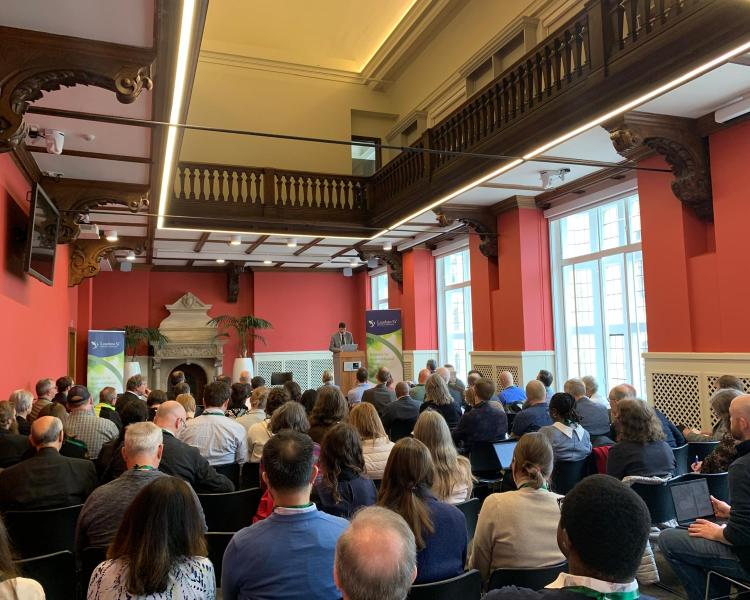
After lunch, the film Faith, Ecology, and Hope, a new film by the LSRI directed by Emma Webster, was screened.
You can watch the film here.
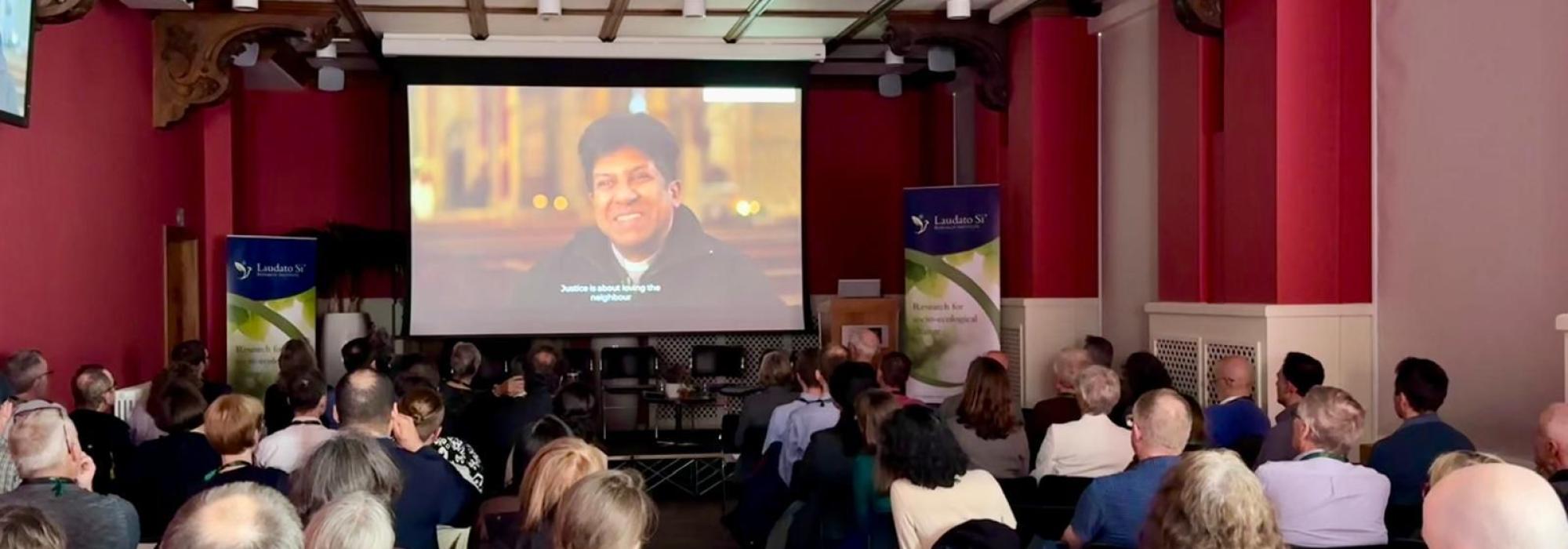
In the afternoon, participants divided into three stream-based groups:
(1) Perspectives from Theology and Philosophy, (2) Interdisciplinary Perspectives, and (3) Applications in Culture, Society, and Politics.
STREAM 1: PERSPECTIVES FROM THEOLOGY AND PHILOSOPHY
Prof Luis Caruana (Beyond Interconnectivity: from Integral Ecology to a Theology of Complementarity) analysed ecological interconnectivity and its theological consequences for moral and systematic theology. Dr Jakub Kowalewski (Does the Devil find work for Idle Hands? Laudato Si’ and the Political Theology of Rest) examined how the political theology of rest, especially as presented in the encyclical, might inform policy. Lastly, Dr Nancy Rourke (Integral Ecological Moral Character) explored the moral character as an ecosystem of a sort, reflexively embedded within a person’s surrounding ecosystems.
STREAM 2: INTERDISCIPLINARY PERSPECTIVES
Dr Cecilia Medupin (in the photo) began by presenting her paper The Scientist as Priest, focusing on freshwater biodiversities, specifically macro-invertebrates. In Hopkins and the Poetics of Ecological Conversion, Robin Schofield asked what is the contribution of poetry in tackling the ecological crisis. Dr Ania Grobicki (The Climate and Spirit Group: How Spiritual Conversations can hold Hope as the Climate Crisis Deepens) brought the example of the Climate and Spirit Group and the way hope informs ecological discernment.
STREAM 3: APPLICATIONS IN CULTURE, SOCIETY, AND POLITICS
The Rev’d Margot Hodson reflected on the implications of selling a specific land to the highest bidder, as opposed to the local parish, in her paper Sacred Land? Integral Ecological Reflection on the Sale of a Black Death Burial Site in Langford, Oxfordshire, followed by Ali Jones Alkazemi (From Fear to Care: Theological Responses to the Ecological Crisis in Latour, Pope Francis, and Critical Theory), who highlighted Francis and Latour's emphasis on a relational, incarnational understanding of God, humanity, and creation. Rachel Grandey (Ethnos, Eden, Extinction: Hmong Theological Perspectives on Environmental and Cultural Loss) examined the impact of religious belief on Hmong attitudes towards extinction in South East Asia.
STREAM 1: PERSPECTIVES FROM THEOLOGY AND PHILOSOPHY
Prof Luis Caruana (Beyond Interconnectivity: from Integral Ecology to a Theology of Complementarity) analysed ecological interconnectivity and its theological consequences for moral and systematic theology. Dr Jakub Kowalewski (Does the Devil find work for Idle Hands? Laudato Si’ and the Political Theology of Rest) examined how the political theology of rest, especially as presented in the encyclical, might inform policy. Lastly, Dr Nancy Rourke (Integral Ecological Moral Character) explored the moral character as an ecosystem of a sort, reflexively embedded within a person’s surrounding ecosystems.
STREAM 2: INTERDISCIPLINARY PERSPECTIVES
Dr Cecilia Medupin (in the photo) began by presenting her paper The Scientist as Priest, focusing on freshwater biodiversities, specifically macro-invertebrates. In Hopkins and the Poetics of Ecological Conversion, Robin Schofield asked what is the contribution of poetry in tackling the ecological crisis. Dr Ania Grobicki (The Climate and Spirit Group: How Spiritual Conversations can hold Hope as the Climate Crisis Deepens) brought the example of the Climate and Spirit Group and the way hope informs ecological discernment.
STREAM 3: APPLICATIONS IN CULTURE, SOCIETY, AND POLITICS
The Rev’d Margot Hodson reflected on the implications of selling a specific land to the highest bidder, as opposed to the local parish, in her paper Sacred Land? Integral Ecological Reflection on the Sale of a Black Death Burial Site in Langford, Oxfordshire, followed by Ali Jones Alkazemi (From Fear to Care: Theological Responses to the Ecological Crisis in Latour, Pope Francis, and Critical Theory), who highlighted Francis and Latour's emphasis on a relational, incarnational understanding of God, humanity, and creation. Rachel Grandey (Ethnos, Eden, Extinction: Hmong Theological Perspectives on Environmental and Cultural Loss) examined the impact of religious belief on Hmong attitudes towards extinction in South East Asia.
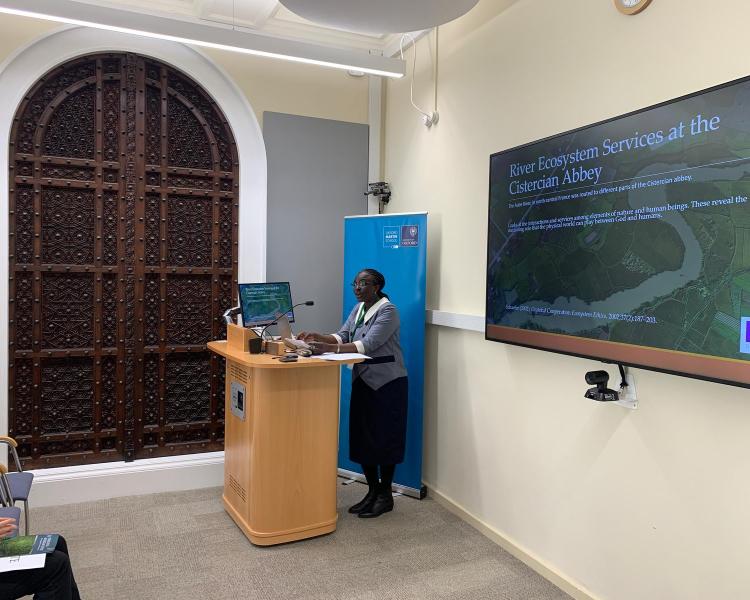
The day ended with a service of Choral Evensong at Christ Church Cathedral. The service included readings, prayers and music related to integral ecology.
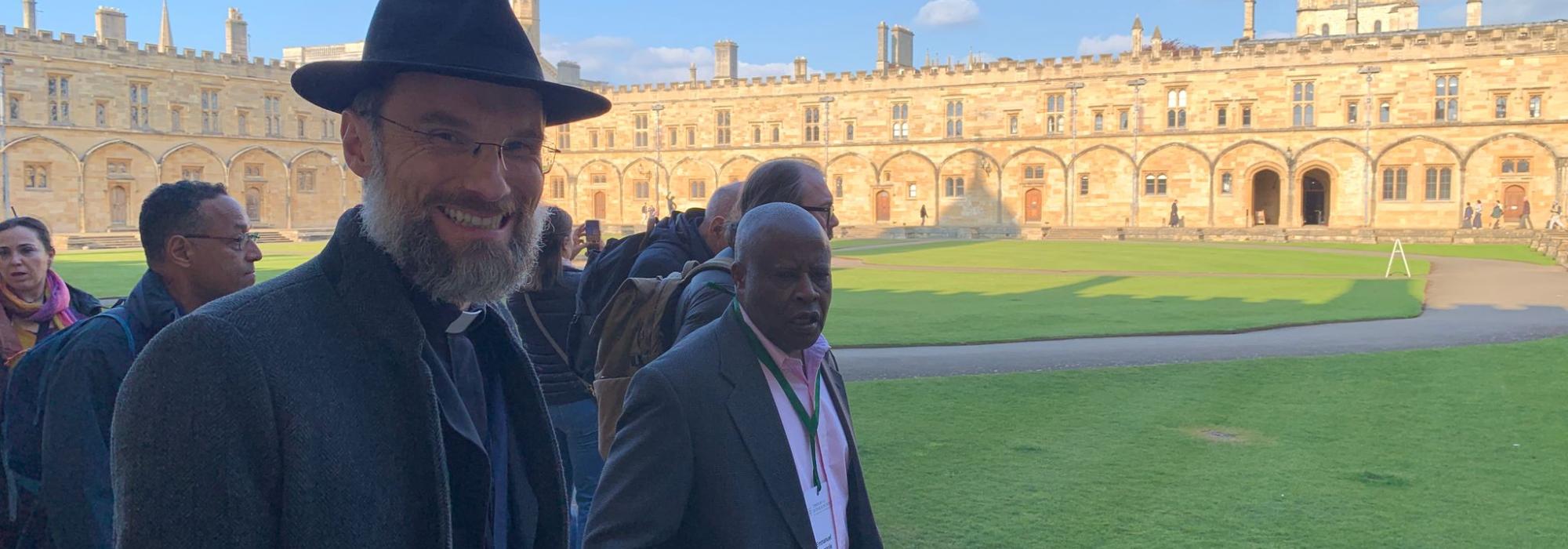
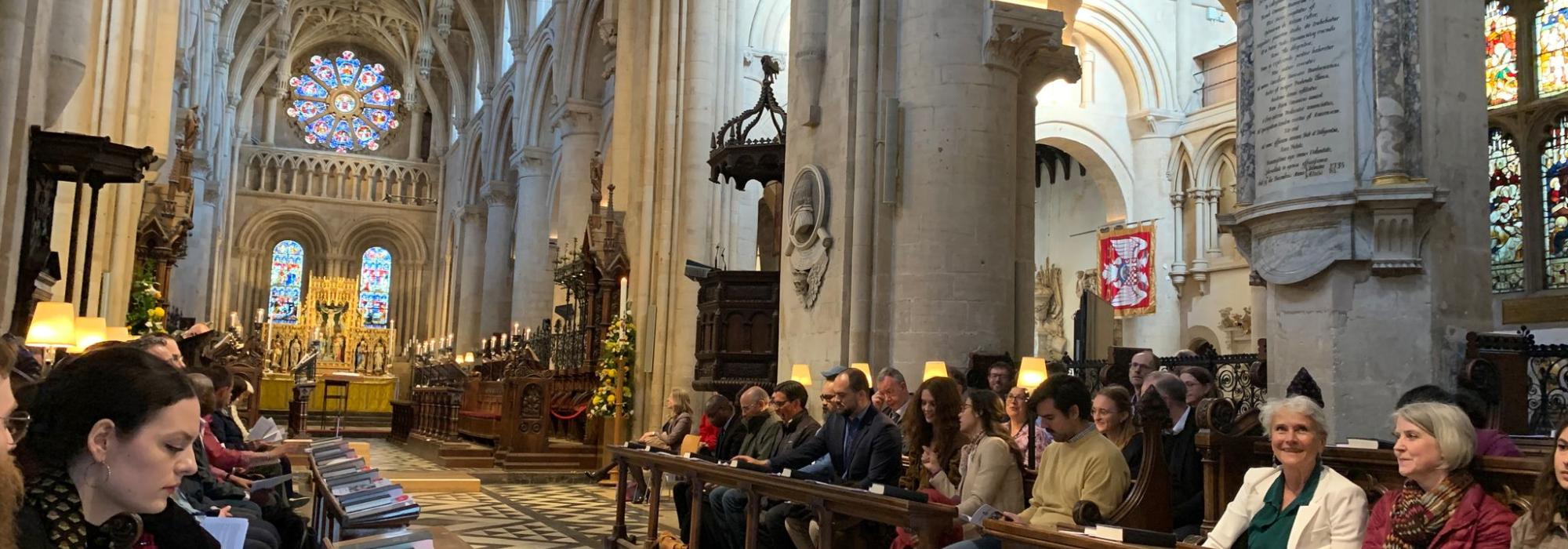
Related News
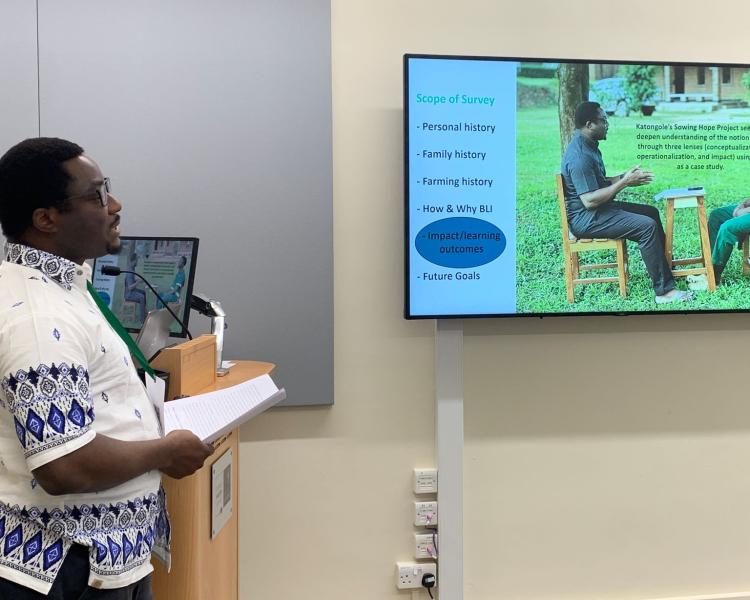
Theology & Integral Ecology Conference: Day 2
The second day of our conference explored grounded applications of integral ecology.
Discover More
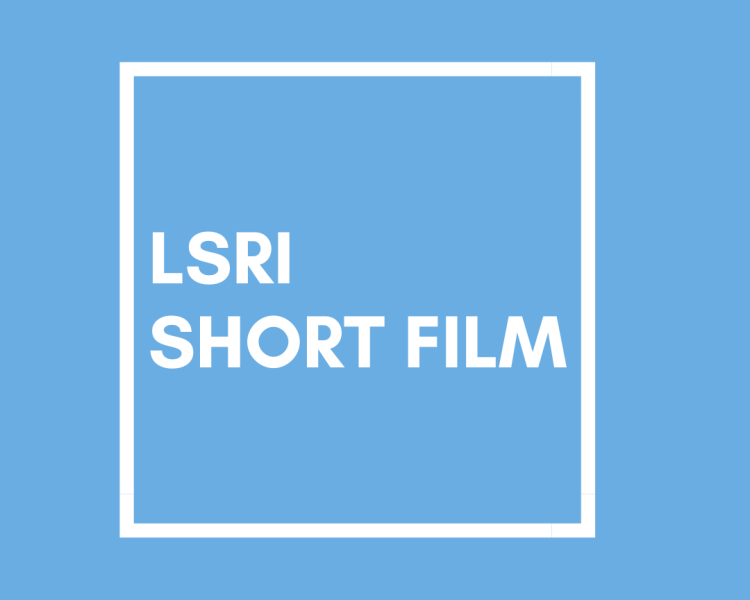
Faith, Ecology and Hope
Video
Discover More
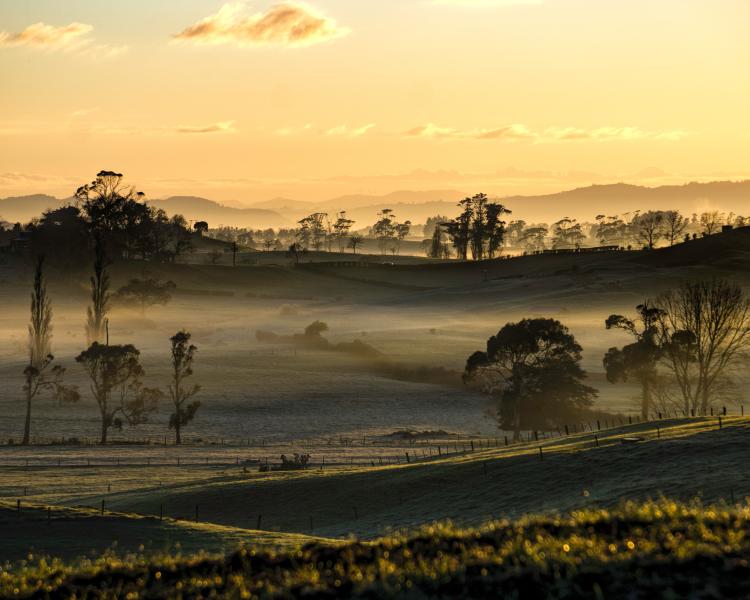
Theology and Integral Ecology Conference: Speakers
Biographical description of our keynote speakers
Discover More


